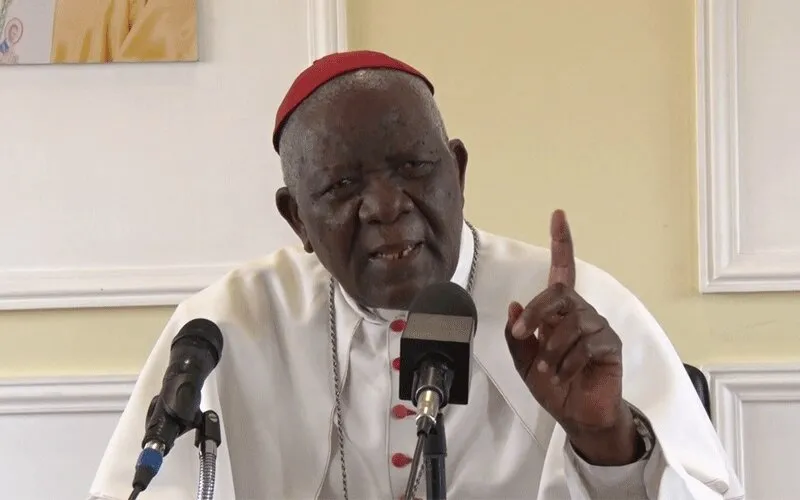Douala, 03 December, 2020 / 4:11 pm (ACI Africa).
Cameroon needs to return to the federal system of government to bring an end to the protracted Anglophone crisis that has resulted in the death of thousands of people and the displacement of hundreds of thousands, the Cardinal in Central African nation has said.
In an interview with Radio France International (RFI) published Wednesday, December 2, Christian Cardinal Tumi underscored the value of federalism saying “a federated state is necessarily a divided state.”
“Nothing less than federalism is going to succeed in stabilizing Cameroon,” Cardinal Tumi said, adding, “There has to be some autonomy for the North-West and South-West as it was when we were a federal country. That was a time in our country when we had no problems.”
In the RFI December 2 news report, Cardinal Tumi hints to the history of federalism in Cameroon saying, “Francophones have to get out of their heads that a federated state is necessarily a divided state. No, we can have federalism and the country remains perfectly united.”
“The Anglophone minority is fighting precisely for more autonomy after what it describes as decades of marginalization by the government and the Francophone majority,” the Archbishop Emeritus of Cameroon’s Douala Archdiocese further says.








